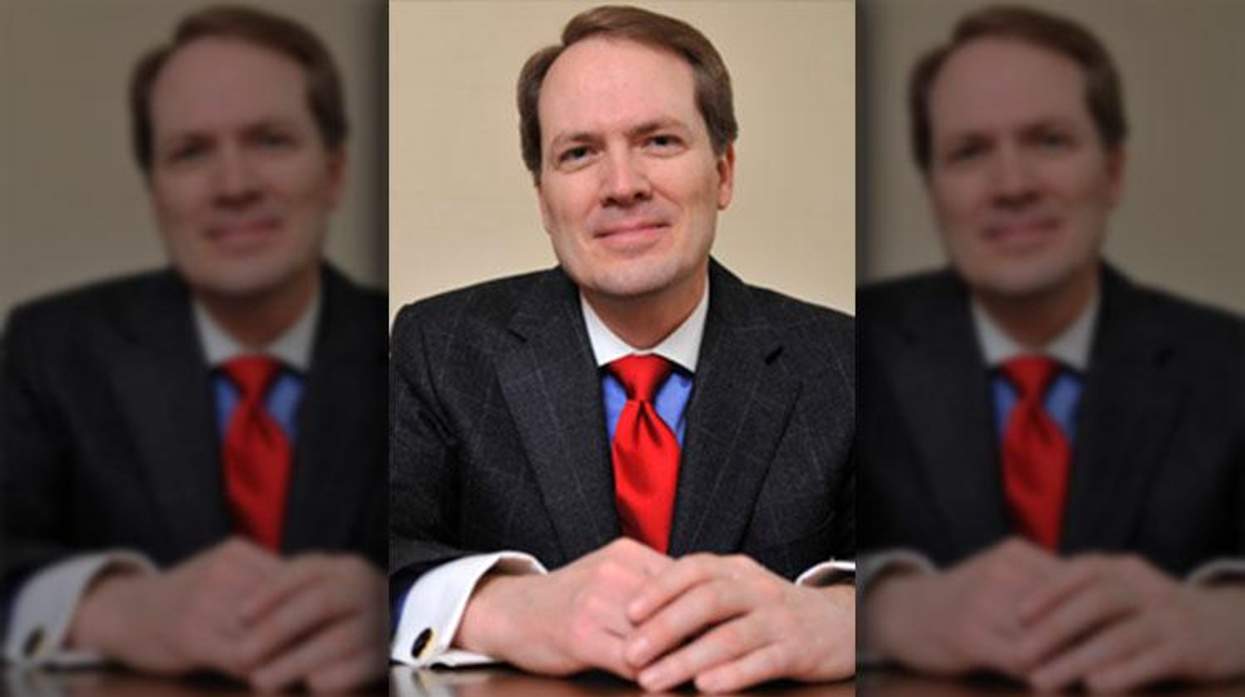Howard C. Nielson Jr., nominated by Donald Trump to be a judge on the U.S. District Court in Utah, defended the backers of California's Proposition 8 in court and argued that the judge hearing the case should have recused himself because he's gay.
The Alliance for Justice, a progressive group monitoring the judiciary, just released an extensive report on Nielson, whose nomination was announced in September. His nomination has been referred to the Senate Judiciary Committee, which has yet to hold a hearing. The Alliance for Justice opposes his confirmation. He is a partner in the Washington, D.C., law firm of Cooper & Kirk and worked in the Justice Department during the George W. Bush administration.
Nielson, the latest in a string of problematic judicial nominees, was among the attorneys for the plaintiffs in Hollingsworth v. Perry, the case involving Prop. 8, a voter-approved state constitutional amendment that temporarily banned same-sex marriage in California. California state officials refused to defend Prop. 8 in court, so the amendment's supporters took up the defense.
After Vaughn Walker, chief judge of the U.S. District Court for the Northern District of California, ruled in 2010 that Prop. 8 violated the U.S. Constitution, Nielson filed a motion to vacate, that is, nullify the ruling, notes the AFJ. He argued that Walker should have recused himself from the case because he was in a same-sex relationship, with the motion saying Walker "had a duty to disclose not only the facts concerning his relationship, but also his marriage intentions." Nielson also wrote that only if Walker "unequivocally disavowed any interest in marrying his partner could the parties and the public be confident that he did not have a direct personal interest in the outcome." The motion was denied by another judge.
Also during the Prop. 8 case, Nielson argued that sexual orientation could be a choice rather than an innate characteristic and "disputed the effects of discrimination on LGBTQ individuals, such as increased rates of depression and attempted suicide," the AFJ reports.
In the end, Walker's ruling was upheld in 2012 by the U.S. Court of Appeals for the Ninth Circuit, and in 2013 the U.S. Supreme Court ruled that Prop. 8's supporters did not have legal standing to defend the measure, so Walker's ruling stood -- and Prop. 8 fell.
But Nielson's opposition to marriage equality continued, as he filed a friend-of-the-court brief in Obergefell v. Hodges, the same-sex marriage case heard at the Supreme Court in 2015, the AFJ notes. He contended that marriage must remain an exclusively opposite-sex union because "in particular, through the institution of marriage, societies seek to increase the likelihood that children will be born and raised in stable and enduring family units by both the mothers and the fathers who brought them into this world." The court majority was not won over by this or similar arguments, ruling for nationwide marriage equality in June of that year.
Also a major concern, according to the AFJ, is that Nielson, as deputy assistant attorney general in the Justice Department's Office of Legal Counsel from 2003 to 2005, may have been involved with the so-called torture memos authored by his boss, Stephen Bradbury. Theses memos, the AFJ reports, "provided the legal justifications for 13 types of enhanced interrogation techniques employed by the CIA, including waterboarding." U.S. Sen. John McCain, who was tortured as a prisoner during the Vietnam War, called the memos "permission slips for torture."
"It is imperative that Nielson disclose his full involvement in the 'torture memos,' since the evidence suggests he may have been intimately involved with their issuance," the AFJ says. And even if he did not work on them, he has defended them, the organization notes.
On other issues, Nielson has authored friend-of-the-court briefs opposing the Affordable Care Act and supporting a Texas law that imposed tight restrictions on abortion clinics. He has represented the National Rifle Association in attempts to overturn gun restrictions. He represented Republicans in Congress in attempts to repeal environmental regulations and advocated for an end to affirmative action in higher education.
Nielson is a graduate of Brigham Young University and the University of Chicago Law School. He is the son of Howard C. Nielson St., a former Republican congressman from Utah.




































































Charlie Kirk DID say stoning gay people was the 'perfect law' — and these other heinous quotes